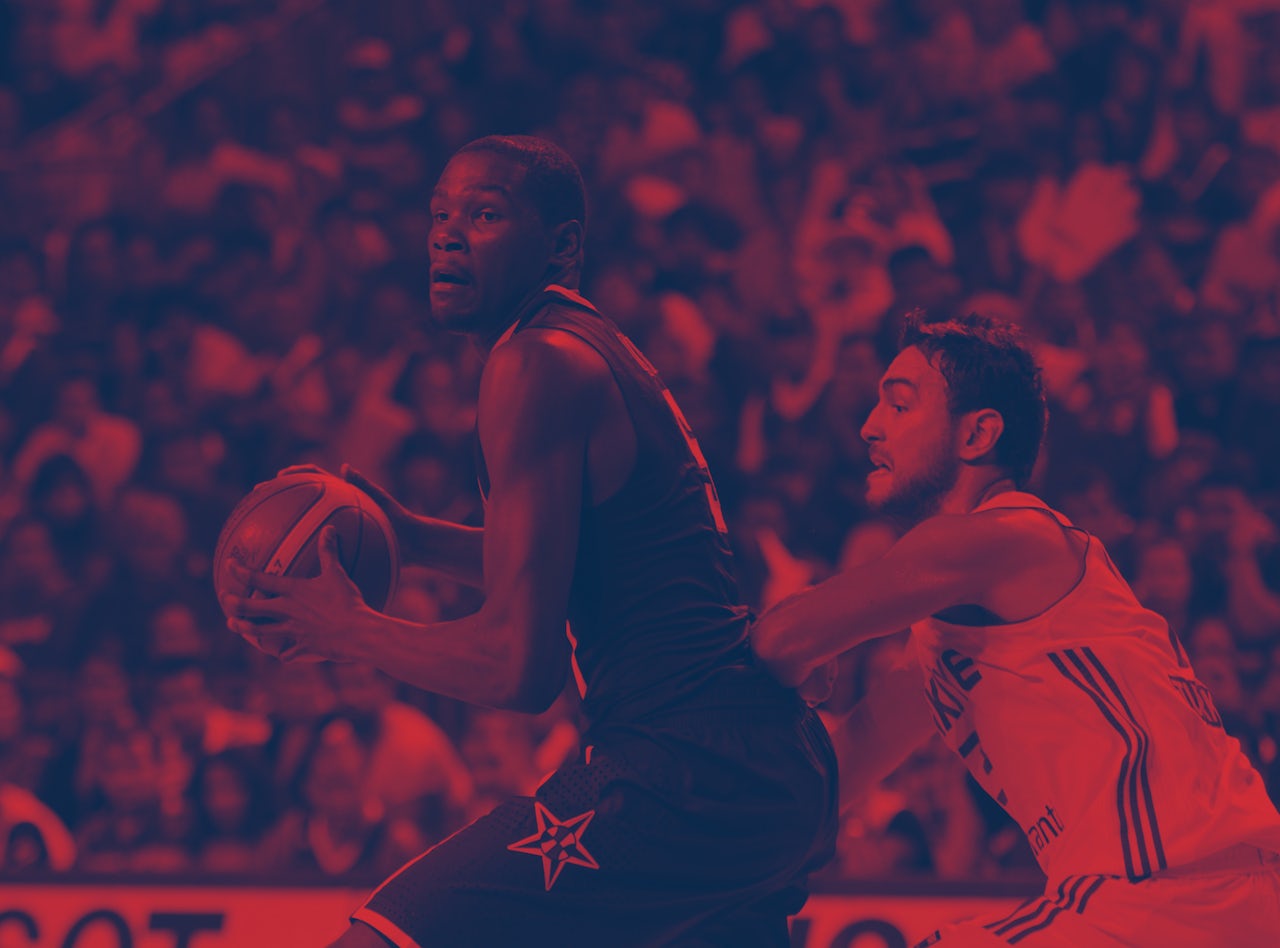The basketball phenom Kevin Durant has long been very online, in the casual meaning of the phrase. A decade ago, when Twitter was still mostly populated by media theorists and weirdos, Durant, now 31, used it like a young person he was: to say what was on his mind, with no self-consciousness about who might be reading. “#uever wake up n the middle of da night and think about a girl u like or startin to like and sit at da edge of the bed n say damn i want her,” went one famous admission from 2010; “Scarlett johanneson I will drink ur bath water...#random” went another, from 2011.
Durant’s casual approach to the internet sometimes took devious turns: In 2017, he was criticized for seemingly creating a series of burner accounts to defend himself after his widely vilified decision to sign with the Golden State Warriors. “I wanted a place where I can talk to my friends without anybody just butting in my conversations or mixing my words or taking everything out of context because I enjoyed that place,” he said to ESPN. This is not really an explanation, but surely we can recognize the impulse, however poorly executed, to express one’s true feelings without worrying how they’d be distorted.
A multi-champion, MVP-level, generationally talented player beloved by few — this does not happen often in sports. But Durant’s career is unique: His rise to fame coincided exactly with the rise of social media, which formed his reputation in tandem. He is, perhaps, the best player of all-time whose comings and goings have always been readily dissected in real-time by the swarming hordes of online sports discourse — the exact age between “too old for Twitter” and “too young to be media trained to be ‘good’ at Twitter,” which frequently manifested in awkward ways. “As time went on,” he told the Wall Street Journal this summer, “I started to realize I’m just different from the rest of the guys. It’s not a bad thing. Just my circumstances and how I came up in the league.”
After a long layoff in which he mostly posted sponsored content, this summer he returned with a posting frenzy. Mostly, he discusses athletes he admires and the finer facets of basketball strategy, which you could expect. So do many other basketball stars, when they aren’t busy self-promoting, expressing permissible political options, or having a good-natured interaction with a fan. But just as often as Durant behaves similarly to his peers, he is defiantly singular in one regard: he responds personally to his critics in a forceful, confrontational way not unlike how people grew up talking on message boards (or, just as relevantly, the basketball court).
Here are a few interactions I like:
In response to a user who told him “Dude- you have got to be the most self-conscious dude in the NBA. Give it a rest and grow up,” Durant said: “No”
Who the fuck wants to look at graphs while having a hoop convo?
— Kevin Durant (@KDTrey5) October 15, 2019
In response to a user who has now deleted his initial tweet because it was presumably embarrassing, but in my memory it was something like “why are you wasting all your time online,” Durant said: “Bro maybe I just like Twitter. It could all be so simple but u wanna take it there”
In response to a user who said “Nobody asking for a autograph from KD in NY. It straight fade on sight for that pussy” after a miniature controversy about Durant’s (accurate) comments that the New York Knicks were no longer cool, he said: “I don’t believe u”
What are u gonna do? Boo and tweet me insults? Have at it champ
— Kevin Durant (@KDTrey5) October 8, 2019
In what’s probably my favorite reply, in response to a user who said “you hate the media....but they made you who you are today....they created your perception and your idea of validation....love brotha,” Durant elegantly said: “I disagree”
People tweet at Durant as though he is not a person, projecting all their perceived notions about how an athlete should behave, to which he consistently replies: “No, actually, and that’s sort of ridiculous, even if I am a millionaire basketball genius we are both actual people and you’re out of your mind if you’d behave like this in real life.” The effect of this is surprisingly deflating: More often than not, his critics stop engaging with him, or even proudly retweet his replies. They seem to understand, however temporarily, that they have lost in a game of their own invention, and hopefully feel silly about it.
I also regarded Durant with some disdain for his role in stacking the odds so heavily for one team. I still don’t respect it, but it doesn’t really matter; if I told him how I felt, I imagine he’d tell me I was full of shit. But I do respect his surliness in refusing to regard the internet as a separate social formation, as so many people do, where the boundaries and conventions of real life can be freely and rudely transgressed.
Because of this I like him more than I did last year, which I didn’t think was possible, and in some regards see him as a type of existential millennial hero, someone willing to cut against the passive norms of his era to speak the truth. Do I sound crazy? I don’t know, do I? I’ll return to something he said in 2015: “You say it’s “just Twitter’ but is it really ‘just Twitter.’”
